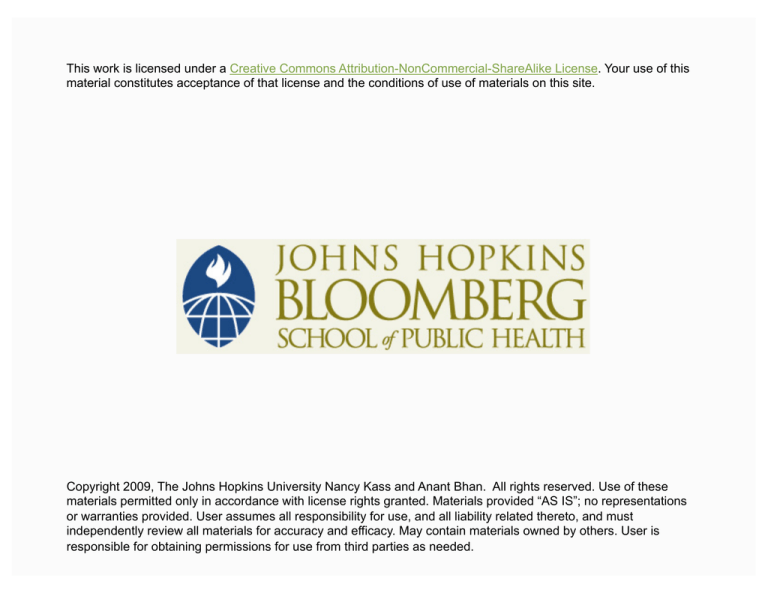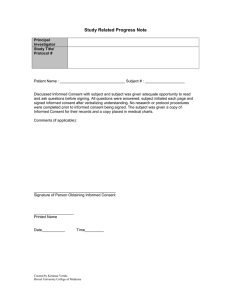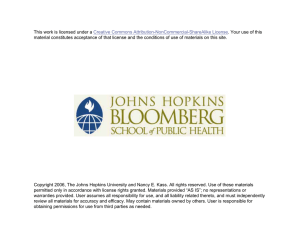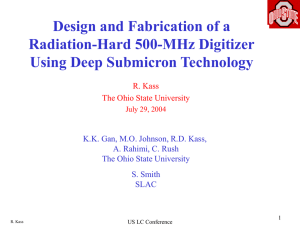
This work is licensed under a Creative Commons Attribution-NonCommercial-ShareAlike License. Your use of this
material constitutes acceptance of that license and the conditions of use of materials on this site.
Copyright 2009, The Johns Hopkins University Nancy Kass and Anant Bhan. All rights reserved. Use of these
materials permitted only in accordance with license rights granted. Materials provided “AS IS”; no representations
or warranties provided. User assumes all responsibility for use, and all liability related thereto, and must
independently review all materials for accuracy and efficacy. May contain materials owned by others. User is
responsible for obtaining permissions for use from third parties as needed.
History of Research Ethics:
U.S. and South Asia
Nancy E. Kass, ScD
The Johns Hopkins Berman Institute of Bioethics
Anant Bhan, MBBS, MHSc
Ethical Social and Cultural Program for the Grand
Challenges in Global Health Initiative
Section A: Background
Nancy E. Kass, ScD
Beginning of the 20th Century
Limited amount of research conducted
- Pre–World War II experimentation on self or one’s own patients
- Larger studies mostly through defense efforts
Some evidence of consent requirements
- World War II led to broader government interests in science and
research
- Larger, systematic clinical investigations initiated to gain
knowledge for sake of others, not for subjects themselves
4
Nuremberg Code: 1948
As a result of World War II Nazi experiments
First international code
Voluntary consent essential
- Legal capacity required
- Able to exercise free choice
- Duty and responsibility for ascertaining the quality of consent
rests with investigator
5
The 23 Defendants at the Doctors Trial
Source: National Holocaust Museum photo archives. Public domain.
6
Dr. Hans Kurt Eisele—Medical Researcher at Dacha
Source: National Holocaust Museum photo archives. Public domain.
7
Survivor of Experiments at a Concentration Camp
Source: National Holocaust Museum photo archives. Public domain.
8
Declaration of Helsinki: 1964
International code by and for physicians who conduct research
Emphasized potential conflict physician-researchers have
“It is the mission of the physician to safeguard the health of the
people”
“The health of my patient will be my first consideration”
9
Declaration of Helsinki
Based on good science
Reviewed by independent committee
Importance in proportion to risk
Interest of subjects “must always prevail over interests of science
and society”
Intervention should be tested against “best current prophylactic,
diagnostic, and therapeutic methods”; then revised again
Can’t publish if not compliant with code
Informed consent (Provision #9)
10
CIOMS
First code to consider less developed communities
Individual informed consent
Investigator’s duties regarding consent
Appropriate inducements
Special populations
Privacy
Independent committee review
11
CIOMS: Strong Emphasis on Justice
Responsive to health needs of host country
Agree in advance that products will be made reasonably available
afterward
12







